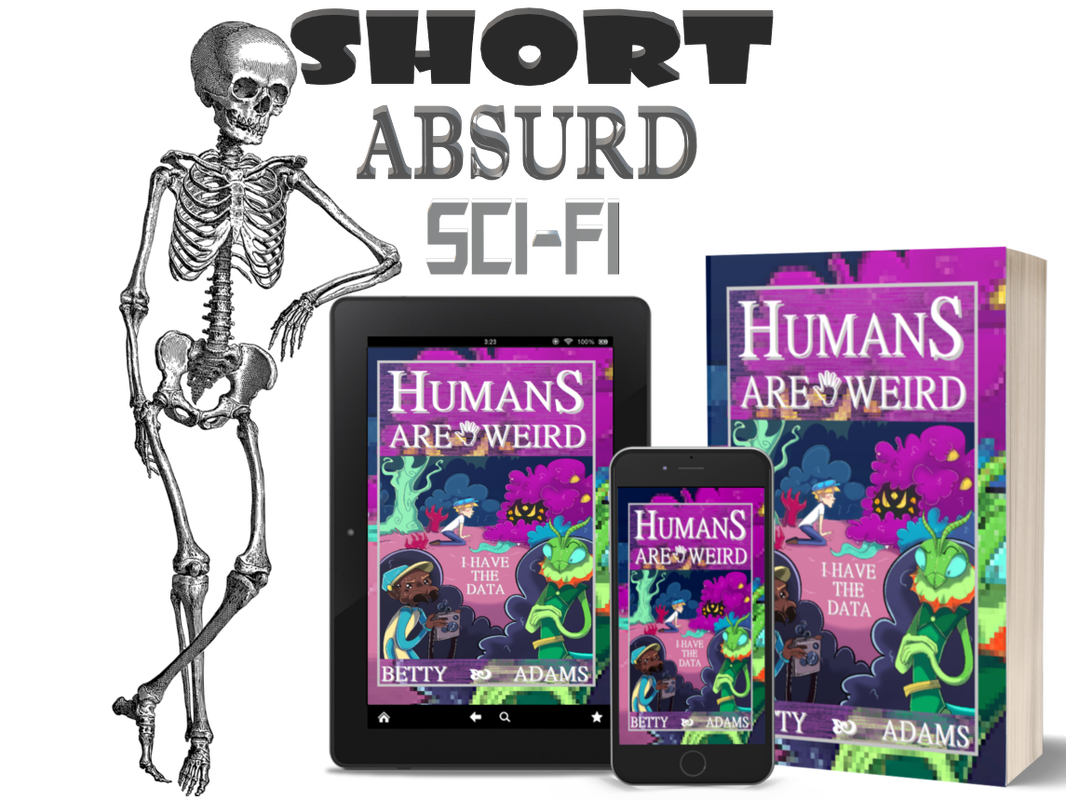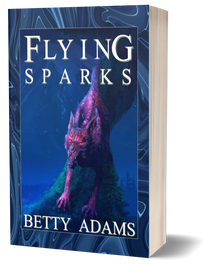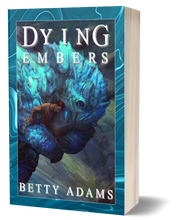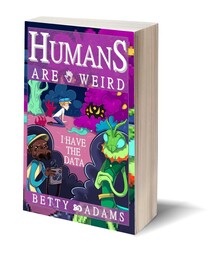What Makes Elves So Special
“...Wonderful folk, Elves, sir! Wonderful!'
'They are,' said Frodo. 'Do you like them still, now you have had a closer view?'
'They seem a bit above my likes and dislikes, so to speak,' answered Sam slowly. 'It don't seem to matter what I think about them. They are quite different from what I expected – so old and young, and so gay and sad, as it were.'
Hello! My wonderful viewers and welcome to another episode of Betty Adams Overanalyzes! Today we are going to take a special look at storytelling and symbology!
So I was browsing my internet feed the other day when I came across a fascinating question. The poster was asking what was so special about elves anyway? Weren’t they just humans with pointy ears? Why were they so popular?
That is a very good question, for a species that is not terribly different from humans, why is the concept of elves so alluring, so enduring, with elves, or elf like creatures showing up in the very oldest of the Scandinavian myths to elves populating most of the modern fantasy books.
The first, most obvious caveat is that you have to define which elves you are talking about. The Keebler elves in their tree with their cookies don’t count (sorry Lord of the Beans). The elves in Santa’s workshop don’t count.
While there are countless iterations of elves from the dark Drow to the Maidens of the Record of the Lodus war manga most modern elves share similar features (the ones that make them special and answer the question) inherited from their ancestral megafauna progenitors.
The elves of Valinor, or middle Earth, the Elves that Samwise Gamgee saw passing through the forests of the Shire.
So what makes these elves so special?
The classic Tolkinian elves were functionally immortal, highly intelligent, the average elf being as smart as or smarter than the average human, and they had a much closer connection to the spiritual. To the point that elves could willingly just leave their body.
(also there is a lot of debate if Tolkien's elves even had pointed ears, as it was said that it was difficult to tell elf and human babies. apart)
But to answer your question, what is "special" about elves. The human fascination with elves was mostly based in the specific element of that greater connection to the spiritual. Not always the ‘good’ the devine spiritual either. The higher the intelligence, the higher the spiritual plane, the greater the capacity for evil. A shark, with all of its brain cells firing has no capacity for evil, a dolphin, with their tendencies to kill for pleasure and not food gets much closer to evil, a human with free will is fully capable of it, an elf with the free will of humanity and greater intellect and spiritual connection is likewise capable of greater evil, as well as greater good.
Elves are more, elves are dangerous, and not simply on the physical level.
Elves (in the vast majority of interpretations) invoke an experience of the numinous. That is that feeling a human gets of awe when faced with the divine supernatural. Something like fear, something like terrible joy.
CS Lewis described this is great detail and if you think for one hot second that I am passing up the chance to quote Lewis in detail in a video about elves, hello! You must be very, very new to the channel, please like and subscribe.
In all developed religion we find three strands or elements, and in Christianity one more. The first of these is what Professor Otto calls the experience of the Numinous. Those who have not met this term may be introduced to it by the following device. Suppose you were told there was a tiger in the next room: you would know that you were in danger and would probably feel fear. But if you were told “There is a ghost in the next room”, and believed it, you would feel, indeed, what is often called fear, but of a different kind. It would not be based on the knowledge of danger, for no one is primarily afraid of what a ghost may do to him; but of the mere fact that it is a ghost. It is “uncanny” rather than dangerous, and the special kind of fear it excites may be called Dread. With the Uncanny one has reached the fringes of the Numinous. Now suppose that you were told simply “There is a mighty spirit in the room”, and believed it. Your feelings would then be even less like the mere fear of danger: but the disturbance would be profound. You would feel wonder and a certain shrinking — a sense of inadequacy to cope with such a visitant and of prostration before it — an emotion which might be expressed in Shakespeare’s words “Under it my genius is rebuked”. This feeling may be described as awe, and the object which excites it as the Numinous. Now nothing is more certain than that man, from a very early period, began to believe that the universe was haunted by spirits. Professor Otto perhaps assumes too easily that from the very first such spirits were regarded with numinous awe. This is impossible to prove for the very good reason that utterances expressing awe of the Numinous and utterances expressing mere fear of danger may use identical language — as we can still say that we are “afraid” of a ghost or “afraid” of a rise in prices. It is therefore theoretically possible that there was a time when men regarded these spirits simply as dangerous and felt towards them just as they felt towards tigers. What is certain is that now, at any rate, the numinous experience exists and that if we start from ourselves we can trace it a long way back. A modern example may be found (if we are not too proud to seek it there) in The Wind in the Willows where Rat and Mole approach Pan on the island. “Rat,’ he found breath to whisper, shaking, `Are you afraid?’ `Afraid?’ murmured the Rat, his eyes shining with unutterable love. `Afraid? of Him? O, never, never. And yet — and yet — O Mole, I am afraid.’” Going back about a century we find copious examples in Wordsworth — perhaps the finest being that passage in the first book of the Prelude where he describes his experience while rowing on the lake in the stolen boat. Going back further we get a very pure and strong example in Malory2 , when Galahad “began to tremble right hard when the deadly (= mortal) flesh began to behold the spiritual things”. At the beginning of our era it finds expression in the Apocalypse where the writer fell at the feet of the risen Christ “as one dead”. In Pagan literature we find Ovid’s picture of the dark grove on the Aventine of which you would say the place is haunted, or there is a Presence here; and Virgil gives us the palace of Latinus “awful (horrendum) with woods and sanctity (religione) of elder days”4 A Greek fragment attributed, but improbably, to Aeschylus, tells us of earth, sea, and mountain shaking beneath the “dread eye of their Master”.5 And far further back Ezekiel tells us of the “rings” in his Theophany that “they were so high that they were dreadful”:6 and Jacob, rising from sleep, says “How dreadful is this place!”.7 We do not know how far back in human history this feeling goes. The earliest men almost certainly believed in things which would excite the feeling in us if we believed in them, and it seems therefore probable that numinous awe is as old as humanity itself. But our main concern is not with its dates. The important thing is that somehow or other it has come into existence, and is widespread, and does not disappear from the mind with the growth of knowledge and civilization.
Sure they look human, or they can, but they are so much more. When you interact with an elf you get the same sensation as when you stare into a perfectly clear sky and get dizzy with a sense of the infinite. When you stand on the shore and feel the waves pounding the earth and for one moment get a sense of the raw power of the ocean as a whole.
There is something about elves that touches the divine of the infinite in a way that (most) humans do not.
However (again in most tales) elves also seek for this divine taste of the infinite and there are some humans, very rare but there are, who touch the infinite in ways that elves cannot.
So there is a double allure to elves, if you hang out with an elf, if you can insert yourself into that story as a reader you might be able to experience that feeling of having interacted with something above/beyond the merely mortal human, you might be able to touch that sense of numinous in a very real physical form, and maybe just maybe you are that one special human who the elves will see the divine in. Perhaps you the reader are one the elves will seek out to find their own sense of numinous. Perhaps you are special, and we all love feeling special.
So that my wonderful viewers, is my explanation for what makes elves different from simply pointy eared humans. They are a connection to the divine that humans naturally seek. They fulfill a more than simply physical yearning, but what do you think my wonderful viewers? Did I miss any Elvish lore? Please leave a comment below telling me why you think that elves are special, and more than just humans with pointy ears.
Hit that like and subscribe button and peace out my wonderful viewers!








 RSS Feed
RSS Feed


